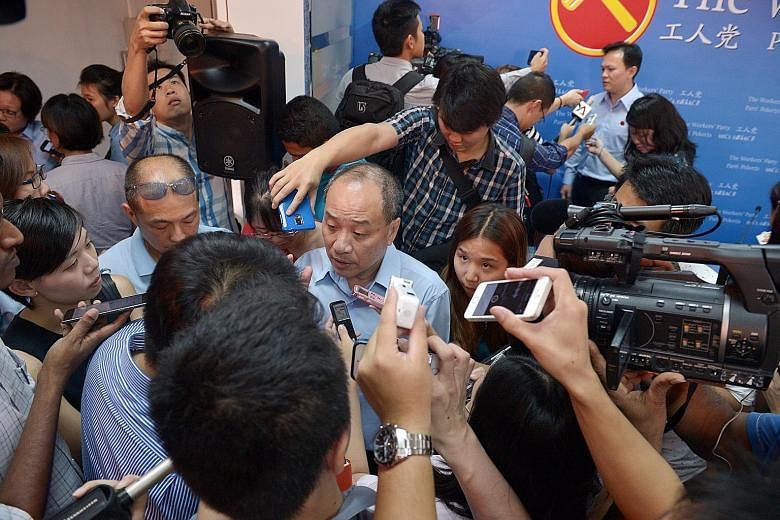For opposition parties that contest only a minority of seats, what counts is not so much the overall share of the vote, but how many seats they win. For decades, the opposition presence in Parliament was confined to just one or two elected members, apart from four in the 1991 General Election.
All that changed in 2011 when the Workers' Party (WP) took Aljunied GRC's five seats in one fell swoop.
Along with the Hougang and Punggol East single seats - the latter won in a 2012 by-election - the WP now has seven MPs.
WP chief Low Thia Khiang's goal now is to entrench the opposition for "a more balanced Parliament".
"After you voted in seven elected MPs from the WP, you have made the Government work," said Mr Low at the WP's first round of candidate introductions.
"We ought to entrench, carry on with the momentum, so that we have a secure future," he added.
How far will that momentum go? Mr Low's personal opinion was that at least 20 opposition MPs are needed for a healthy Parliament.
The number of seats won might be what matters immediately, but changes in vote share could shed light on longer-term prospects.
At first glance, the WP's electoral record from the late 1980s might seem to be characterised by consistency, at least until 2011.
From 1988 till 2006, its vote share hovered around two-fifths. Measured by the share of valid votes in seats contested, the WP's performance seems steadier than the PAP's.
But this can be explained by the anomaly of the 2001 General Election. That election, in which the PAP garnered a whopping 75.3 per cent, was exceptional for both sides. It came in the midst of an economic crisis and global uncertainty after the Sept 11 attacks in the United States, which are seen to have driven voters towards the security represented by the ruling party.
The WP managed to get 39.3 per cent of the vote in the seats it contested, despite the PAP's stellar performance. But that disguises the fact that the WP contested just two wards, making its vote share a nigh-meaningless average.
The party performed very differently in both seats, taking 55 per cent of the vote in Hougang but just 26.3 per cent in Nee Soon East.
Take out the outlier that is 2001, and the WP's gains seem to have largely tracked the PAP's losses. This mirroring continued into 2011, when the PAP suffered a downward vote swing of 6.5 percentage points and the WP's vote share rose by 8.2 percentage points.
Whether the same will happen this year is less clear-cut. Policy improvements, Golden Jubilee celebrations and lingering sentiment over Mr Lee Kuan Yew's death are expected to boost the PAP vote.
Yet, with the WP having established itself as the dominant opposition party, any PAP gains might come from those seats contested by smaller opposition parties.
Janice Heng

